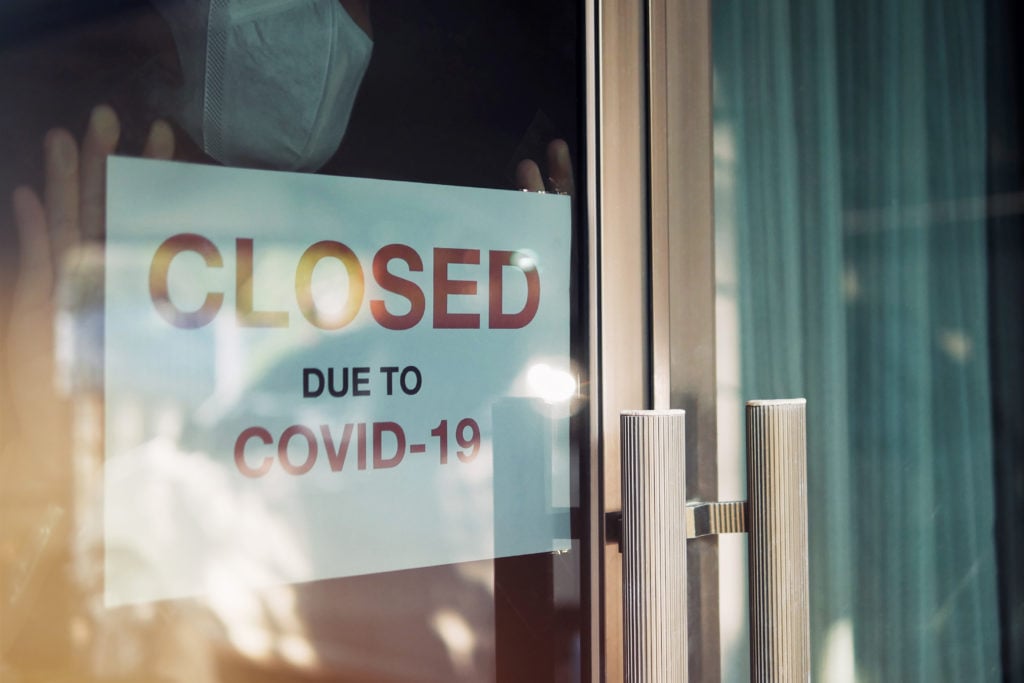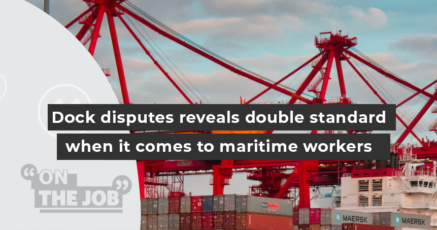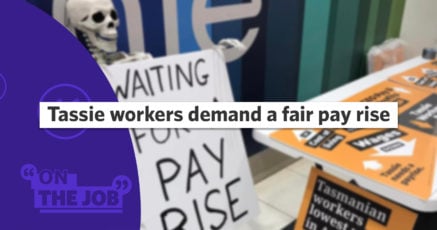Lockdown.
It’s a phrase that brings a sinking feeling to the stomach of tens of thousands of workers who rely on casual and insecure jobs week to week to make a living.
With no entitlements like sick pay and holiday pay, and no guarantee that their job will be there when the lockdown ends, insecure workers are always just one adverse event away from financial distress.
Whilst the latest lockdown in Victoria is necessary to effectively deal with the current COVID-19 outbreak, it has again exposed how the insecure work economy is hurting workers financially, emotionally and psychologically.
For Frankie, this latest lockdown has hit particularly hard.
Like so many young workers, she has a couple of regular casual jobs that she relies on, and she supplements that income with Centrelink payments where it’s appropriate.
It’s a tightrope she walks each week to put together enough money to live on. The lockdown means her hospitality gig is off for this week. The money she would have earned from a couple of days work vanishes with it.
To compound the stress, Frankie was recently told by Centrelink that she had accumulated a debt due to her earnings exceeding a certain limit.
Workers like Frankie are trapped in a nasty and punitive bureaucratic cycle with the JobSeeker regime as they juggle earning enough to live on and meeting their obligations under the law.

The uncertainty and anxiety are taking their toll.
“Yesterday, I had a massive shower cry about it,” Frankie told On the Job.
“People my age are in a very similar situation to me. It’s this constant thing about once you have any kind of saving it gets drained, it gets taken away.
“Either Centrelink audit you and then all of a sudden, out of nowhere, you owe them two grand, or you don’t have work for the next couple weeks. So, any savings that you might have that you wanted for some kind of quality of life, are suddenly gone.
“It’s so disappointing because you feel like you’re never getting ahead. And I think there is that comparison to the older generation.
“You kind of feel like a bit of a f*ck-up.
“I was talking to my mum yesterday and I said I don’t understand why I’m in this. It’s like a constant struggle.”
For Frankie – and so many other young workers caught in the insecure work economy – their future is never more than the next pay day away. That constant insecurity is eroding their confidence and optimism.
“Occasionally, you’re fine. And then you’re having a panic attack because you just spent $20 on something may be a little bit nicer for yourself and you’re thinking, I shouldn’t have done that because I don’t deserve to do it, I don’t have enough money.
“It’s really, really awful. And it’s just so frustrating because those that are making the decisions have never had to live like this.
They’re not on the same planet as me.”
Pete Luscombe knows all about the pitfalls of insecure work.
As one of Australia’s finest drummers, Pete holds down the groove for Paul Kelly’s band as well as the Rock Whiz Orchestra.
Like all musicians and artists, the pandemic has decimated his work opportunities. Whilst he was able to access JobKeeper and had the staunch support of Kelly, he’s had to supplement his income by teaching music on a casual basis in the tertiary sector.
That work too has ground to halt and JobKeeper is nowhere to be seen.
“The worst thing now is my wife is also a casual employee – she works in retail. Once they shut the doors, you don’t get paid for that. So for the next couple of weeks, you think – OK, where do we get rent money from without digging into anything you’ve saved,” Luscombe said.
Following last year’s grueling lockdown, Paul Wilkins had made the choice to make a break from city life and move to the town of Torquay on Victoria’s surf coast.
Paul found a job at a busy pub in nearby Geelong. With Australia’s borders clamped shut, and interstate travel still a gamble with the potential risk of sudden lockdowns and border restrictions, business has been booming as people spent their spare cash locally.
He’s thrived in his new job, where he’s risen to a leadership role.
Despite this, Paul’s job remained a casual gig, and he was always just one COVID episode away from being without any income. That moment came yesterday when Victoria went back into lockdown.
“With this lockdown, my income disappears for the week,” Paul told On the Job.
“I’ll drop around $1200 (before tax) and any super as well. I’m thinking – hold on, I’ve got to pay a few bills this week and a water bill next week, so that won’t leave me with much disposable income.”
“Now there’s no JobKeeper, there’s no way for me to make up the income that I’m going to miss out on this week.”








SHARE:
Insecure workers punished as lockdown strikes again